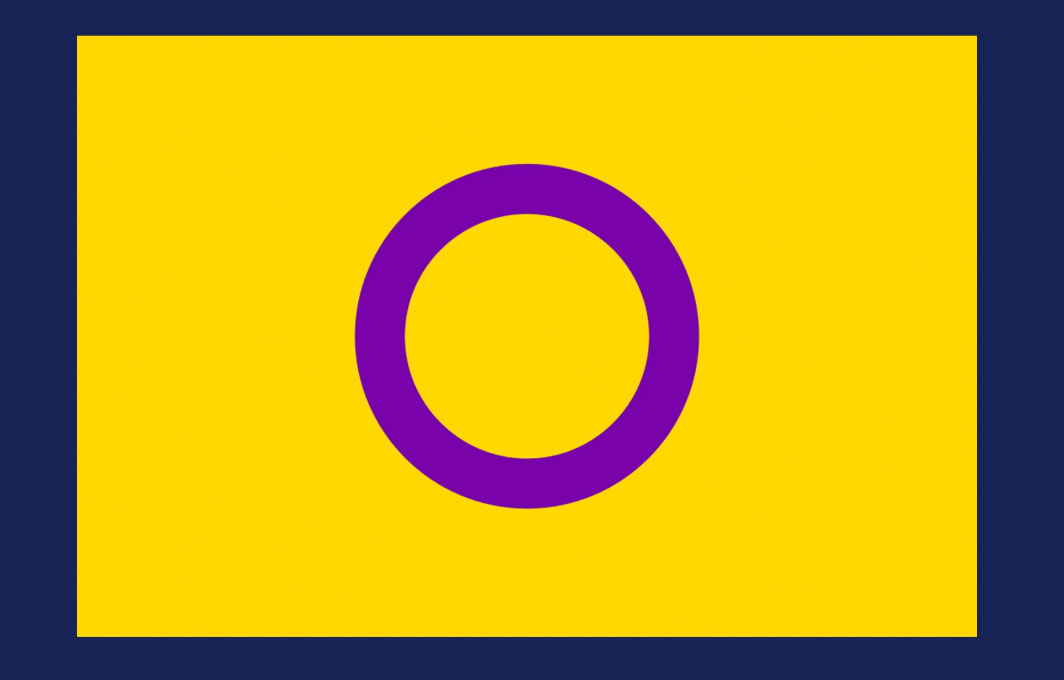With the enactment of a law protecting intersex children, Kenya has become the first African country to grant official recognition to intersex people as a third gender. Starting in July 2022, they are eligible for an ‘I’ gender marker on their identity cards.

Intersex flag
The Washington Blade reported the news in an article by Sam Kisika that is reprinted in edited form below:
Landmark intersex rights law takes effect in Kenya
A new law that took effect late last month in Kenya has granted equal rights and recognition to intersex people
Intersex people are now recognized as Kenya’s third gender with an ‘I’ gender marker in response to the Children Act 2022. Kenya is the first African country that has granted the intersex community this universal right.
The new law requires intersex children to be treated with dignity and have equal access to basic services like medical treatment and education, in addition to social protection services as a special need. It also requires the accommodation of intersex children in child protection centers and other facilities.
Courts are also required to consider the needs of intersex children who are on trial — including the calling of an expert witness — before they issue any ruling. The law further stipulates that anyone can be a foster parent without restrictions of gender, age or marital status.
It also protects intersex children from so-called sex normalization surgeries, and requires that such procedures will only be done with a doctor’s recommendation. Those who violate the law will face at least three years in jail and a fine of at least $5,000.
“This is a great and major milestone globally for Kenya. We are now way ahead and can teach our neighbors and the whole globe good practices,” said Jedidah Wakonyo, a human rights lawyer and former chair of the Intersex Persons Society of Kenya.
The new law follows numerous court battles by intersex people who demanded the right to recognition as another gender in their birth certificates.
Being denied birth certificates by laws that only recognized male and female genders further limited their access to national identity cards, passports and other crucial documents and government services.
The Births and Deaths Registration Act under the new law’s Section 7 (3) “shall take measures to ensure correct documentation and registration of intersex children at birth.”
Intersex people commonly have a combination of male and female gonads (ovaries or testicles) or ambiguous genitalia.
Wakonyo, who also chaired the Intersex Persons Implementation Coordination Committee and was named the International Court of Justice’s 2020 jurist of the year, describes the law’s enactment as a historic moment because of its comprehensive definition of an intersex person.
It defines an intersex child as “a child with a congenital condition in which the biological sex characteristics cannot be exclusively categorized in the common binary of female or male due to inherent and mixed anatomical, hormonal, gonadal or chromosomal patterns which could be apparent before, at birth, in childhood, puberty or adulthood.”
Kenyan law considers anyone under 17 to be a child.
“Defining an intersex from a child’s perspective while taking care of many aspects and not just the physical notion of being intersex is the best practice because in future they don’t find themselves in the state of gender confusion between males and females like the current situation,” stated Wakonyo.
This provision essentially protects intersex persons from being deprived of their constitutional rights of gender recognition under the country’s Bill of Rights.
Veronica Mwangi, the deputy director at Kenya’s National Commission on Human Rights, that helped secure the law’s implementation, said it addresses issues for which the intersex community has been fighting for years.
“It is very progressive and we are glad about the gains because it provides for the existence of the intersex which all state actors have to accept. Full implementation is what we now need to focus on,” she said.
The law took effect roughly five years after Kenya became the first African nation and the second country in the world after Australia to count intersex people in a Census. The 2019 survey showed 1,524 Kenyans were intersex.
Intersex rights groups had initially petitioned the courts for a total ban of surgeries on intersex children unless they were a medical emergency.
Wakonyo backs the provision for a doctor’s approval on grounds that the surgeries will only be done “in the best interest of the intersex child, informed consent of the parents and the participation of the child depending on the age.” Wakonyo and other activists say the relaxation of the requirements for adopting intersex children not only seeks to end the problem of neglect and abandonment but also the stigma that has left some to die by suicide.
The law safeguards adoptive parents’ rights and parental responsibility and intersex children from child labor, online abuse and other forms of exploitation.
“Intersex children who are just like other children will no longer be killed at birth because of their gender ambiguity,” said Wakonyo.
Despite the law’s huge benefits for the intersex community, Wakonyo notes it is a “very significant foundation” for the group because gender-specific accommodations in social gatherings and facilities remain needed.
Another historic win for intersex Kenyans this year was the Kenyan National Commission on Human Rights’ decision to hire an intersex commissioner.
“Dr. Dennis Wamalwa applied as an intersex (person), interviewed as an intersex (person), and the shortlist comprised male, female, and ‘I’ gender for intersex. He emerged (at the) top and his intersex friends and associates came to witness his swearing,” stated Wakonyo, who also served as a Kenyan National Commission on Human Rights commissioner.
COMMENTS